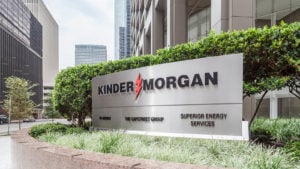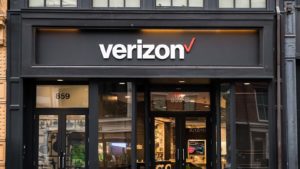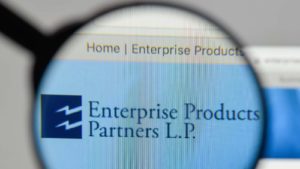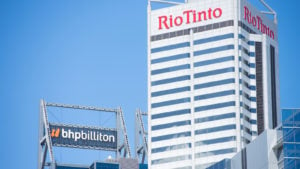As a general rule of thumb, inflationary cycles often drive the bullish case for high-yield dividend stocks to buy. After all, if the Federal Reserve weakens the currency through dovish monetary policies, the return on government-issued bonds diminishes. However, the central bank currently commits to a hawkish strategy, leading to higher yields on bonds.
Despite the obvious competition, high-yield dividend stocks to buy still make sense in a deflationary (hawkish) cycle. For one thing, government bonds typically provide lower passive income because of their inherently low default risk. Therefore, investors can get better returns (in exchange for higher risk) with corporate dividend plays.
Another factor bolstering high-yield dividend stocks to buy centers on stability. Typically, companies that facilitate passive income have established businesses that focus on profitability rather than outright expansion. Given the deflationary environment, growth companies will likely face much more pressure.
For those that want to adjust to the new realities of the market, below are seven high-yield dividend stocks to buy now.
| PM | Philip Morris | $96.90 |
| GLPI | Gaming and Leisure Properties | $50.50 |
| KMI | Kinder Morgan | $18.28 |
| VFC | V.F. Corporation | $32.35 |
| VZ | Verizon | $38.62 |
| EPD | Enterprise Products Partners | $24.71 |
| RIO | Rio Tinto | $64.28 |
High-Yield Dividend Stocks to Buy: Philip Morris (PM)

Philip Morris (NYSE:PM) is the largest tobacco company in the world based on its market cap of over $150 billion. On a year-to-date basis, shares are up 2%, significantly outperforming the S&P 500, which is down 17%.
Fundamentally, Philip Morris may benefit from cynical economic woes. While smoking rates have been on the decline for some time, increased stress could lead to an uptick in the habit. Despite the obvious social ills, Philip Morris undeniably represents one of the best high-yield dividend stocks to buy.
Its forward yield of 5.2% is much higher than the consumer staples sector’s average yield of 1.9%. To be fair, the payout ratio of 90.4% is on the (very) high side. However, the company also boasts 13 years of consecutive dividend increases. Management won’t be keen to break that streak.
Gaming and Leisure Properties (GLPI)

Pennsylvania-based Gaming and Leisure Properties (NASDAQ:GLPI) is the “nation’s first real estate investment trust focused on acquiring real property assets leased to gaming operators,” per the company’s website. Its portfolio consists of 57 casino properties across 17 states. Currently, its market cap stands at $13 billion with shares up 4% year to date.
GLPI features a forward yield of 5.6%, exceeding the real estate sector’s average yield of 4.5%. Yet, its payout ratio of 105.3% will almost certainly draw questions about sustainability.
While the company doesn’t have the greatest financial profile, it has enjoyed 10 consecutive years of profitability. Also, GLPI caters to fundamental dynamics. As economic woes force consumers to trade down their vacationing ambitions, local gaming resorts may benefit.
High-Yield Dividend Stocks to Buy: Kinder Morgan (KMI)

Headquartered in Houston, Kinder Morgan (NYSE:KMI) is one of North America’s largest energy infrastructure companies, per its public profile. The company specializes in owning and controlling oil and gas pipelines and terminals. Presently, Kinder Morgan commands a market cap of $41.1 billion. Since the beginning of the year, shares have gained nearly 13%.
The midstream energy player carries a forward yield of 6.1%. Though the energy sector typically offers investors high yields, KMI’s yield easily exceeds the sector average of 4.2%. The payout ratio stands at a lofty 95%, but the company has increased its dividend for five consecutive years.
Investors shouldn’t be overly worried about dividend sustainability with KMI. For one thing, hydrocarbon energy specialists benefitted from a sudden burst of relevance due to geopolitics. Moreover, Kinder Morgan features profit margins that rank above most of its peers.
V.F. Corporation (VFC)

Headquartered in Denver, V.F. Corporation (NYSE:VFC) is an American global apparel and footwear company founded in 1899. It features JanSport, Eastpak, Timberland and The North Face brands under its corporate umbrella. Currently, the company has a market cap of $12.6 billion. Since the start of this year, VFC has dropped 56%, largely due to concerns about weakening consumer spending. Still, it managed to gain 17% in the trailing month.
VFC throws off a forward yield of 6.3%. This is substantially higher than the consumer discretionary sector’s average yield of 1.9%. To be clear, the company’s payout ratio of 84.5% is on the high side, which is even riskier considering the company’s exposure to consumer sentiment. However, VFC is a Dividend Aristocrat on its way to becoming a Dividend King with 48 years of consecutive dividend increases. That’s not a status management is likely to give up without a fight.
Investors interested in this idea should be prepared for potential volatility. GuruFocus warns VFC is a possible value trap. At the same time, the company’s products cater to a wealthier consumer base – as winter sports tend to be expensive – meaning it could hold up better amid an economic downturn.
High-Yield Dividend Stocks to Buy: Verizon (VZ)

Verizon (NYSE:VZ) is one of the biggest telecommunications firms in the world with a market cap of $162.2 billion. It’s also fair to say that the company has seen better days. Since the start of the year, VZ has lost over a quarter of its equity value. Still, it’s attempting a comeback, gaining 8% in the trailing month.
I’ll start with the bad news. According to GuruFocus, VZ is a possible value trap. Shares trade at just 8.4 times trailing-12-month earnings, which is cheap compared to the industry. However, Wall Street analysts have viability concerns about the underlying business
Now for the good news. Verizon still commands a relevant business and offers an enticing dividend with a forward yield of 6.8%. This easily beats out the communications sector’s average yield of 2.6%. Also, the payout ratio pings at 51.5%, which is decent.
Enterprise Products Partners (EPD)

Headquartered in Houston, Enterprise Products Partners (NYSE:EPD) is a midstream natural gas and crude oil pipeline company, making it one of the more relevant high-yield dividend stocks to buy now. No matter what goes on in the economy, there will likely always be demand for energy storage and transportation solutions. Currently, the company carries a market cap of $53.8 billion and shares are up 12.5% so far this year.
Enterprise Products features a blistering-hot forward yield of 7.7%. This rates well above the energy sector’s average yield of 4.2%. A payout ratio of 73% stands on the high side of the risk spectrum, but Enterprise has 24 years of consecutive dividend increases under its belt. That’s a massive selling point that management will not give up easily.
If you choose to put EPD on your list of high-yield dividend stocks to buy, be aware that it is a master-limited partnership. Therefore, you must file a Schedule K-1, which may add unwanted complexities to your tax filings.
High-Yield Dividend Stocks to Buy: Rio Tinto (RIO)

If you want to swing for the fences regarding high-yield dividend stocks to buy, mining specialist Rio Tinto (NYSE:RIO) could be your ticket. Representing the world’s second-largest metals and mining corporation, Rio features a market cap of $104 billion. It’s performed relatively well this year, down just 4% YTD.
The stock offers a forward yield of 8.3%, beating out the materials sector’s average yield of 2.8%. Of course, with such generosity comes risk. First, the payout ratio ranks on the high side at 78.1%. Second, Rio Tinto does not currently feature any history of consecutive years of dividend increases.
Still, for the patient speculator, RIO could be an interesting play. After all, the company specializes in the commodities of tomorrow, including lithium and copper. If you believe in the electrification of mobility, RIO may be an indirect bullish opportunity.
On the date of publication, Josh Enomoto did not have (either directly or indirectly) any positions in the securities mentioned in this article. The opinions expressed in this article are those of the writer, subject to the InvestorPlace.com Publishing Guidelines.
